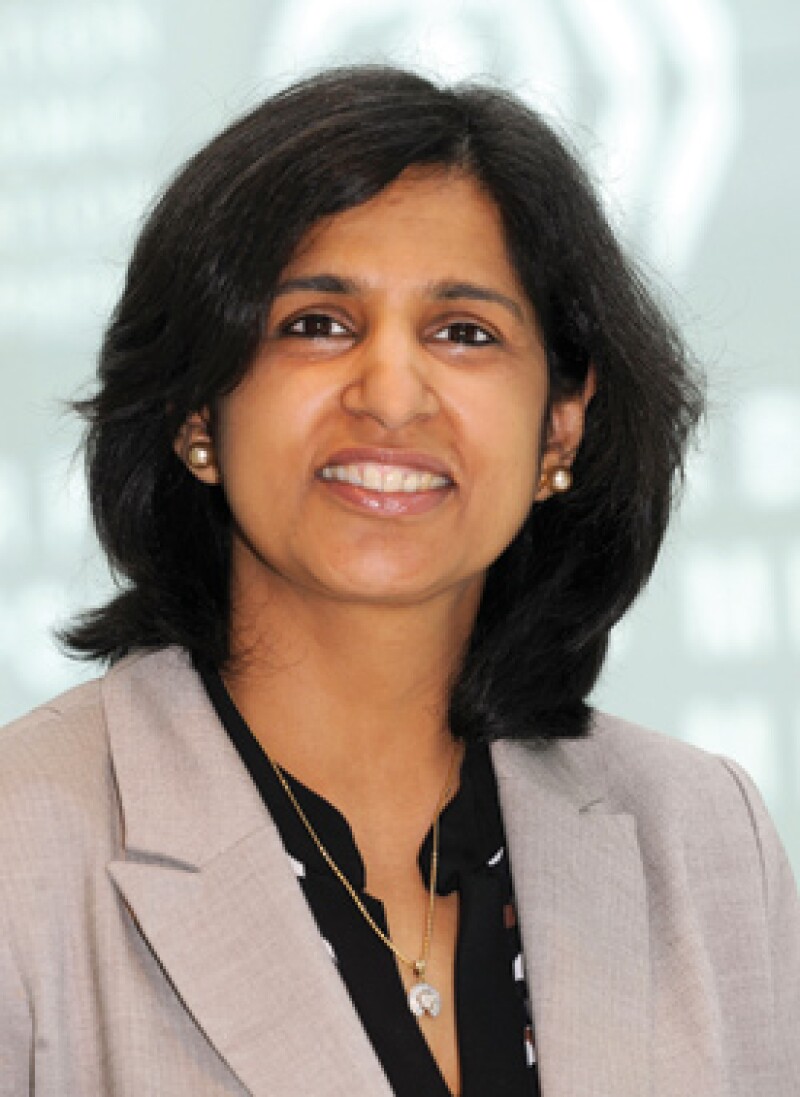
|
After nearly three years as the head of the secretariat of the OECD's Global Forum on Transparency and Exchange of Information for Tax Purposes, Monica Bhatia has proven a powerful force in the tax world. The forum now comprises 123 countries, and Bhatia is tasked with implementing the transparency programme focusing on information exchange between them. Bhatia came from a previous career with the Indian Revenue Service. Having a female Indian leading the global effort to crack down on black money was a positive for a country that is reshaping its political and social landscape.
While under her care, the transparency unit grew even more crucial in 2014, but Bhatia is not resting on her laurels.
"2015 will be a very intense year for us. We will have to assist the Peer Review Group to complete its original schedule of peer reviews, and the coordination role of the Secretariat in this respect will continue to be focussed on high quality, fair, and consistent assessments," said Bhatia in the forum's 2014 progress report.
International Tax Review: The signing of the Multilateral Competent Authority Agreement (MCAA) was a huge step in the global fight against tax evasion. What is the next step for building a successful foundation for the agreement?
Monica Bhatia: The commitment by 89 countries to implement the Common Reporting Standard, which is the new standard of automatic exchange of information (AEOI), and the signing of the MCAA by 51 countries and jurisdictions at the Berlin plenary meeting of the Global Forum was indeed a huge step in the global fight against tax evasion. We expect that other committed jurisdictions will also sign the MCAA in the coming weeks and months.
The next step is to ensure effective implementation. For this, countries will need to enact the required national measures and domestic legislation, put the required IT systems in place and ensure that financial institutions will also have done what is needed under the CRS. The Global Forum and the OECD will support this implementation by way of training and peer-to-peer learning, and by conducting some pilot projects to support developing countries. Simultaneously work will go on to develop a robust peer review mechanism so that jurisdictions who drag their feet or fall back on their commitments can be identified.
ITR: Automatic exchange of information is largely seen as a positive for tax collectors and taxpayers – in your view what are the potential risks of the system?
MB: Automatic exchange has been successfully taking place over the past few years, primarily within the EU countries, and there are many lessons from that experience that will inform the implementation of the new standard. The key concern that needs to be addressed with this type of exchange is to ensure that the information being exchanged is kept confidential, subject to appropriate safeguards and used for purposes indicated in the agreement. The CRS and its related commentary contains the necessary safeguards and the challenge is to ensure that these work in practice both in case of countries which have past experience as well as for those who may be having capacity constraints.
ITR: Focusing on your experience at the Indian tax authorities – India has been particularly active this year in cracking down on 'black money'. How does India's work in this area impact the global effort against tax evasion?
MB: Since the Global Forum was restructured in 2009 to become an inclusive forum, India has taken the lead in its work to ensure that it is able to get effective international cooperation in its efforts to detect offshore wealth and address cross-border tax evasion. Its consistent support to the enhancement of tax transparency at the G20 level has strengthened the global resolve to keep the pressure on all countries to maintain the highest standards of cooperation in tax information exchange. India has also provided inspiration and support in the efforts of other developing countries to fully participate in and benefit from this new transparent environment.
The Global Tax 50 2014 |
||
|---|---|---|
| Gold tier (ranked in order of influence) 1. Jean-Claude Juncker 2. Pascal Saint-Amans 3. Donato Raponi 4. ICIJ 5. Jacob Lew 6. George Osborne 7. Jun Wang 8. Inverting pharmaceuticals 9. Rished Bade 10. Will Morris Silver tier (in alphabetic order) Joaquín Almunia • Apple • Justice Patrick Boyle • CTPA • Joe Hockey • IMF • Arun Jaitley • Marius Kohl • Tizhong Liao • Kosie Louw • Pierre Moscovici • Michael Noonan • Wolfgang Schäuble • Algirdas Šemeta • Robert Stack Bronze tier (in alphabetic order) Shinzo Abe • Alberto Arenas • Piet Battiau • Monica Bhatia • Bitcoin • Bono • Warren Buffett • ECJ Translators • Eurodad • Hungarian protestors • Indian Special Investigation Team (SIT) • Chris Jordan • Armando Lara Yaffar • McKesson • Patrick Odier • OECD printing facilities • Pier Carlo Padoan • Mariano Rajoy • Najib Razak • Alex Salmond • Skandia • Tax Justice Network • Edward Troup • Margrethe Vestager • Heinz Zourek |
||









